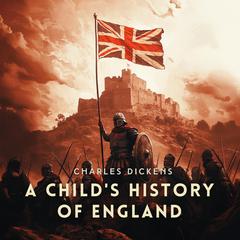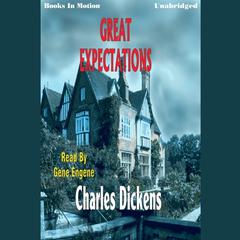 Play Audiobook Sample
Play Audiobook Sample
American Notes Audiobook
 Play Audiobook Sample
Play Audiobook Sample
Quick Stats About this Audiobook
Total Audiobook Chapters:
Longest Chapter Length:
Shortest Chapter Length:
Average Chapter Length:
Audiobooks by this Author:
Publisher Description
In "American Notes," Charles Dickens embarks on a captivating journey across the Atlantic in the 19th century to offer his keen observations and critiques of the young United States. Published in 1842, this travelogue chronicles Dickens' experiences during his tour of the United States and Canada, showcasing his unique ability to blend sharp social commentary with vivid narrative storytelling. The narrative begins with Dickens setting sail from Liverpool to Boston, and from the moment he arrives on American soil, he is met with great enthusiasm and anticipation. Yet, his initial enthusiasm gradually gives way to a critical exploration of American society, culture, and institutions. Dickens paints a picture of a nation marked by stark contrasts – the raw, untamed beauty of the American landscape juxtaposed with the bustling cities, and the democratic ideals of freedom and equality set against the glaring issues of slavery and inequality. Throughout the journey, Dickens encounters a wide array of characters and situations that highlight the complexities of American life. He offers poignant insights into the horrors of slavery, the shortcomings of the prison system, and the social divisions that permeate American society. His narrative serves as a powerful indictment of these injustices and an impassioned call for reform. However, "American Notes" is not solely a critique of the United States. Dickens also portrays the genuine hospitality and kindness of many Americans he meets along the way, and he highlights their eagerness to embrace and engage with the ideas and literature of the Old World. The travelogue ultimately reflects Dickens' conviction that positive change is possible through the exchange of ideas and the continuous dialogue between nations.
Download and start listening now!
"I enjoyed this book. He was surprisingly very witty and I found myself chuckling several times. He's a brilliant writer and sometimes it feels like you're reading a fictional story then you remember this actually all happened to him over 100 years ago. It's pretty neat. Plus, his vocabulary was remarkable... I think anyone who reads this is bound to learn a handful of new words."
— Dee (4 out of 5 stars)
American Notes Listener Reviews
-
" Dickens did not like America on his initial visit in the early 1840s. He describes his disgust at seeing herds of pigs roaming the streets of New York, expresses doubts about the climate of Washington, D.C., decries the national habit of spitting tobacco, and insists that he condemns American politics and the American press in order to make "the Truth" generally known. His denunciation of (almost) all things American was re-imagined in his novel, Martin Chuzzlewit, in which he sends his main character to a Jamestown-esque swamp apparently located in the middle of Ohio (where the character sickens, nearly dies, and comes to an appreciation of his superior British identity.) The novel is funny; this book was not. Dickens is pompous and judgmental, very much a mid-Victorian male. In this book one is forced to spend a great deal of time with him, which I did not particularly enjoy. For example - on the stormy passage over, Dickens explains that the terrible weather had an upside in that his wife was too ill to talk to him. Ugh. "
— Mary, 2/17/2014 -
" Highly enjoyable. Much is still relevant today! "
— Wordwizard, 1/31/2014 -
" enlightening look at earlier times in America, as observed by an astute and funny Dickens "
— Christopher, 1/22/2014 -
" Este libro esta escrito de la manera en que yo escribo mi blog, me ha gustado mucho <3 "
— July, 1/17/2014 -
" Interesting to read about how physically difficult it was to travel overland in 1837 "
— K, 11/26/2013 -
" Not everything Dickens mentions about his travels to America is interesting, but the parts that are interesting are extraordinarily so. A fascinating look at what America was like 1842 through the eyes of an eloquent foreigner. Many very funny parts as well. "
— Suzy, 8/1/2013 -
" I've read several books by Dickens, and this is my favorite. He's not really complimentary of the United States as he observed it, but some of his opinions were warranted. "
— Patricia, 7/18/2013 -
" Dickens' travelogue begins lightly, but the humour quickly devolves into cloying and annoying. Much of his interest is in the public institutions of America, but his descriptions are dull and condescending. This one is generallly bereft of anything interesting or informative. "
— Even, 6/28/2013 -
" It was ok. Driven by his own prejudices and with some questionable facts at times. Funny at times. The chapter on slavery at the end is worth reading even if you don't read the whole book. Still, Dickens should have stuck with fiction. "
— Anne, 3/15/2012 -
" Good travel literature and true to the author's curiosity. However, this will bring the reader to a more bombastic side of Dickens than expected. "
— Michael, 2/11/2012 -
" Not as good as Mark Twain but I loved his outlooks. "
— Vickie, 1/11/2012 -
" I only read half of it, snippets for a seminar at university, but I really enjoyed Dickens' account of his travels. He is wonderfully funny, albeit critical and it is a joy to read this travelogue. "
— nacchi, 5/8/2011 -
" I've read several books by Dickens, and this is my favorite. He's not really complimentary of the United States as he observed it, but some of his opinions were warranted. "
— Patricia, 4/24/2011 -
" In the 19th century this was offensive to Americans and boring to Britons. Today, to this American, half is boring and half is beautifully written and dead right. Glad that schoolwork forced me into this one. "
— Leora, 1/10/2011 -
" It was ok. Driven by his own prejudices and with some questionable facts at times. Funny at times. The chapter on slavery at the end is worth reading even if you don't read the whole book. Still, Dickens should have stuck with fiction. "
— Anne, 5/12/2010 -
" Good travel literature and true to the author's curiosity. However, this will bring the reader to a more bombastic side of Dickens than expected. "
— Iamapremo, 1/6/2010 -
" Dickens' travelogue begins lightly, but the humour quickly devolves into cloying and annoying. Much of his interest is in the public institutions of America, but his descriptions are dull and condescending. This one is generallly bereft of anything interesting or informative. "
— Even, 9/23/2009
About Charles Dickens
Charles Dickens (1812–1870) was born in Landport, Portsmouth, England, the second of eight children in a family continually plagued by debt. A legacy brought release from the nightmare of debtors’ prison and child labor and afforded him a few years of formal schooling. He worked as an attorney’s clerk and newspaper reporter until his early writings brought him the amazing success that was to be his for the remainder of his life. He was the most popular English novelist of the Victorian era, and he remains popular, responsible for some of English literature’s most iconic characters.
About Geoffrey Giuliano
Geoffrey Giuliano is the author of over twenty internationally bestselling biographies, including the London Sunday Times bestseller Blackbird: The Life and Times of Paul McCartney and Dark Horse: The Private Life of George Harrison. In addition, he can be heard on the Westwood One Radio Network and has written and produced over sixty original spoken-word albums and video documentaries on various aspects of popular culture.











































